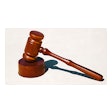Copyright 2017 Star Tribune
All Rights Reserved
Star Tribune (Minneapolis, MN)
A University of Minnesota disciplinary panel has cleared four of 10 Gopher football players accused of sexual misconduct in the alleged assault of a female student last September, but the matter should not end there.
A thorough review is needed because somewhere along the way the process spiraled out of control, unfairly damaging the reputations of at least four of the players. Twice, legal authorities determined there was insufficient evidence to charge any of the 10 student-athletes with a crime. Yet the names and faces were made public. Then a confidential, lengthy and luridly detailed report by the university leaked out. Graphic and unconfirmed allegations quickly raced across social media, establishing a narrative that the 10 men had been involved in hours of debauchery with a young woman too inebriated to give consent. News of the report snuffed out an attempt at solidarity by teammates who intended to boycott a bowl game over what they saw as lack of due process.
Four of the accused, the panel found, were not active participants. But their names will be forever linked to the incident and - in an era in which employers and others routinely do online searches - they likely will be forced over and over again to proclaim their innocence.
This case also points to a growing national problem that stems from the best of intentions - a concerted effort to curb sexual violence and harassment on campuses across the country. Since 2011, colleges and universities have been under increasing federal pressure to act aggressively on claims of sexual violence. The U.S. Office of Civil Rights launched investigations into hundreds of schools for what it considered a failure to comply with its guidance on such issues.
Among the federal directives: Use the "preponderance of evidence" standard common in civil proceedings to determine whether a violation has occurred. That is typically the lightest evidentiary standard, described by one lawyer as "50 percent and a feather." It may be adequate for less grave offenses, but for allegations as serious as rape and other instances of sexual violence, when the stakes are higher all around, school officials should be given discretion to use the higher standard of "clear and convincing" evidence.
The four players cleared by the disciplinary panel - Seth Green, Kobe McCrary, Antoine Winfield Jr. and Antoine Shenault - remain under a cloud because, under revised federal guidelines, schools must offer the right of appeal to the alleged victim as well as to the accused. That is akin to being declared not guilty by a jury only to have the plaintiff ask for another trial. There should be more clarity and guidance on the practice and some evidence that it is needed.
Antoine Winfield Sr., a former Vikings defensive back and father of Winfield Jr., said of the proceedings: "It should never have gotten to this. This is an eye opener for everyone, really. The process needs to change."
This incident adds to the call for more clarity and guidance all around. In the wake of the federal crackdown, universities and colleges all scrambled to devise ways to comply, resulting in varying standards. The U should be commended for offering more due process protections than some of its counterparts. U students accused of a misdeed are allowed to have an attorney present from the start and to bring witnesses on their behalf. That's not the case with all colleges and universities.
Even so, the system is one in which the university is at once the formal complainant, the investigator, the decider on whether a violation occurred and the appellate authority, all wrapped in one. It is possible to reach fair conclusions in such a system, and no doubt the university strives to do so, but that is a heavy burden and by its nature increases skepticism about impartiality.
Students have a right to be safe on campus. That means safe from the fear of sexual aggression, but also safe from the threat of being caught up in a system that fails to provide the due process that is a recognized right in this country. Officials at all levels should work diligently toward striking that proper balance.
Read More of Today's AB Headlines
Subscribe to Our Daily E-Newsletter
Terms and Conditions Privacy Policy































